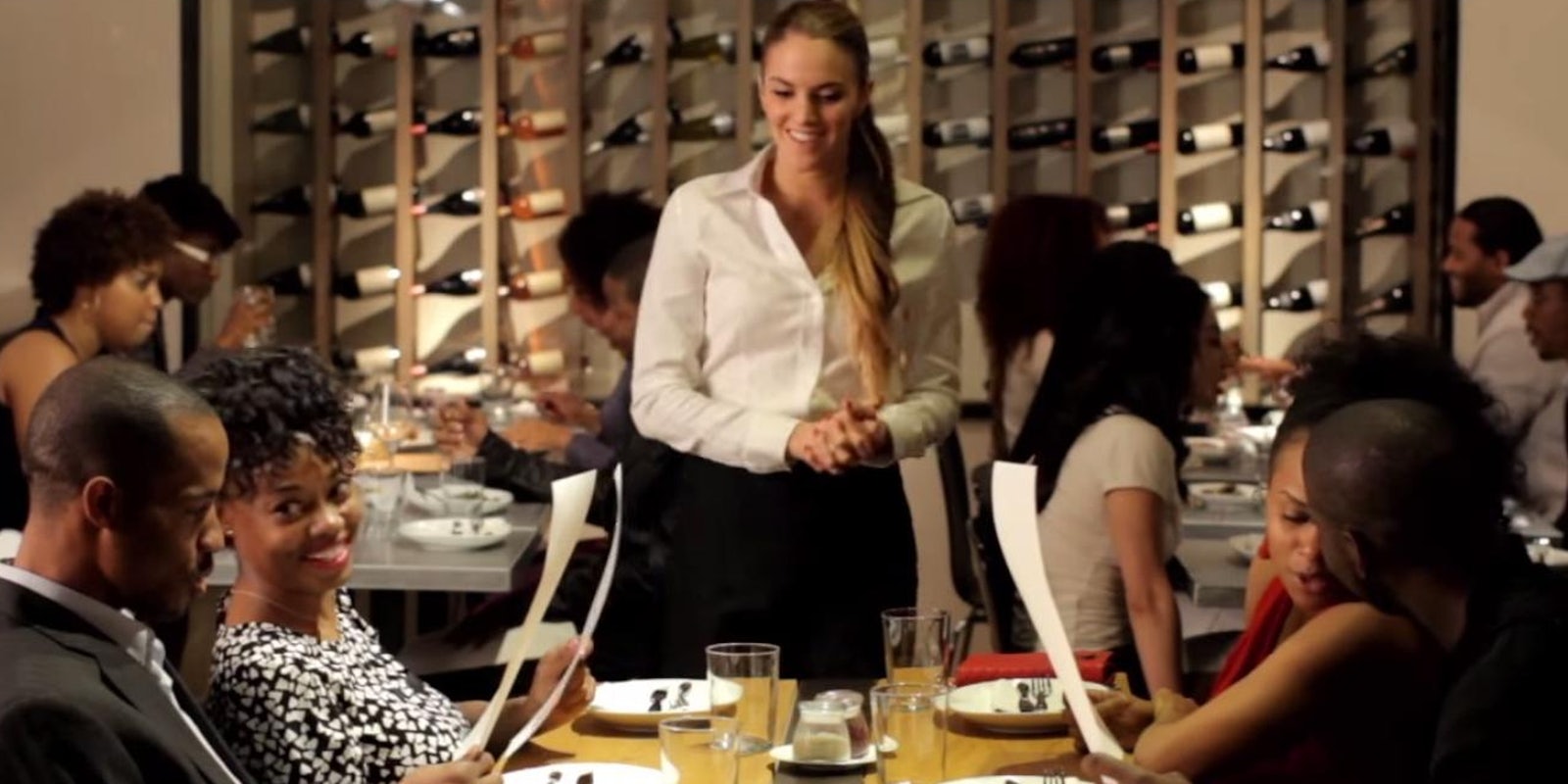The name Black & Sexy TV, voiced online in a signature breathy style, says it all.
Actually, not quite. The endgame for the founders of this upstart media empire really has little to do with being either black or sexy. The mission for this entertainment hub is to take advantage of new models for content creation and distribution that favor creative minds with business acumen and a vision that focuses on market dominance.
Dennis Dortch and Numa Perrier, two of the four founders of Black & Sexy TV, explained the path that took him, along with partners Brian Ali Harding and Jeanine Daniels, from Hollywood filmmakers to media entrepreneurs currently in the process of creating a large slate of original programs.
In 2008, Dortch directed the film A Good Day to Be Black and Sexy, which performed well at the Sundance Film Festival and led to a distribution deal from Magnolia Pictures and a licensing deal with Showtime and Netflix. While commercially satisfying, Dortch told the Daily Dot the experience did not match his personal goals as an artist and businessman.
“When I made my way to Hollywood, I learned that the producers had a fixed set of priorities, but in my head, I had a different set of priorities,” Dortch said in a Skype interview.
With equal parts heart and head, Dortch, his partner Perrier (a frequent star in many of the network’s shows), and two additional colleagues set about going directly to their audience and launching a set of programs using Kickstarter campaigns, personal investments, and a shoestring-yet-professional-looking production approach. Dortch and Perrier’s Los Angeles home even doubled as a set for some of Black & Sexy TV’s earliest productions.
Among B&S’s webseries are Roomieloverfriends, Hello Cupid, That Guy, Becoming Nia, and That Guy, a film offered as a pay-per-view program. There also is Sexless, which launches this Valentine’s Day, and is currently promoted in a series of mini webisodes. And, in a production/distribution deal with HBO, the company will take its show The Couple, which launched online in 2012, to the premium network’s 32 million viewers. That series stars Perrier and actor Desmond Faison.
While the Web shows are dominated by black actors, there is a universal appeal to the vast majority of the storylines. Becoming Nia, for example, is the story of a single mom struggling to raise a son while attempting to find work, maintain a personal life, and handle a relationship with her son’s father. For anyone who has tried to find love online, Hello Cupid is a familiar story, co-created by Ashley Blaine Featherson and starring Hayley Marie Norman, in which roommates swap photos in creating an online profile. With more than 103,000 YouTube subscribers, Black & Sexy TV is evolving as a reliable webseries factory.
As Dortch and Perrier explained, the journey from Sundance to digital success has required perseverance, but the growing fanbase has provided motivation. “It’s great to go directly to our audience and get validation,” Perrier said. “Once we started consistently putting out great content, we started developing a relationship with our audience that allowed us to feed off of one another.”
But, as Dortch added, as a business, in the early days “it was like selling out of the trunk of your car.” As milestones of progress, he pointed to successful crowdfunding campaigns, a successful pay-per-view launch in 2014, and the HBO deal. Creatively, the group’s star continues to rise with reports reports of representation by United Talent Agency.
If there is one confusing element to Black & Sexy’s approach, it is the crazy quilt of options for viewing its content. A number of series are available through YouTube, while others (with some overlap, as evident in Hello Cupid) are packaged for viewing via a pay-per-view platform operated by VHX. It is easy to imagine Black & Sexy as a standalone multiplatform channel, which would eliminate some of the current issues.
In discussing Black & Sexy as a programming force aimed primarily at black audiences, Dortch is firm in saying “there is no agenda” and that he and his colleagues only want to write about what they know. He also casts aside comparisons to Black Entertainment Television (BET), the 35-year-old cable network that targets black viewers.
“I’d rather think of us as a new HBO than a new BET,” Dortch said.
Screengrab via Black & Sexy TV/YouTube


